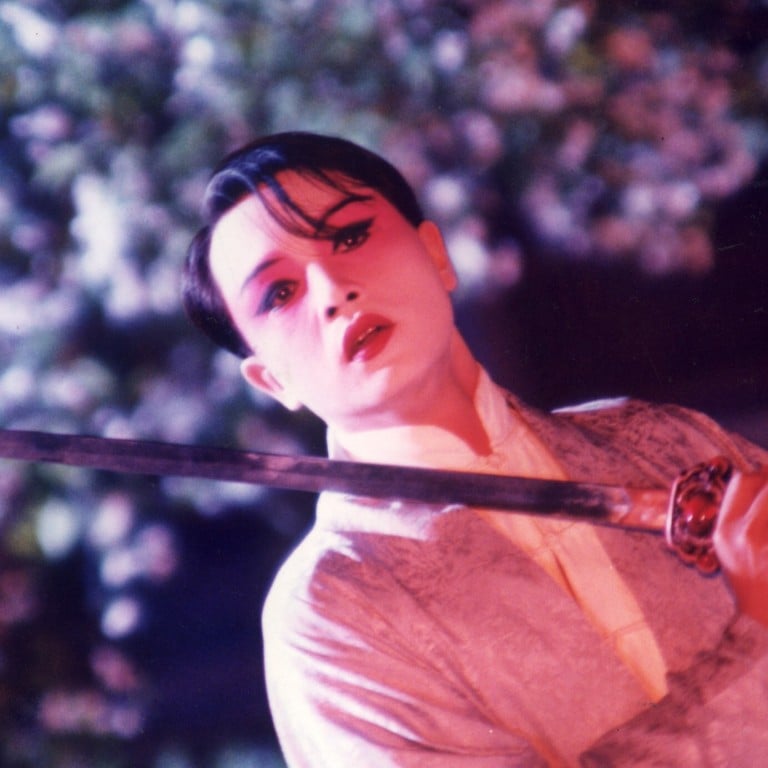LGBT icon and Cantopop star Leslie Cheung’s 5 most iconic film roles – from A Better Tomorrow to Farewell My Concubine

In celebration of what would have been Cheung’s 64th birthday, on September 12, here are five of his most iconic roles.
Are these the new ‘4 Heavenly Kings’ of Chinese pop music?
A Better Tomorrow (1986)
Cheung had starred in a number of films before this John Woo action classic – most notably Patrick Tam’s Nomad, for which he earned a best actor nomination at the Hong Kong Film Awards – but it was this turn as Sung Tse-kit that was his first truly iconic performance. Brother to Sung Tse-ho (Ti Lung), Cheung shines as an idealistic youngster looking to join the police force, indignant that his brother was once a gangster.
What makes Hong Kong star Chow Yun-fat ‘the coolest actor in the world’?
Rouge (1987)
Days of Being Wild (1991)
Hugely popular with critics – though initially less adored by the general public – Cheung won his first best actor award in this memorable early film by director Wong Kar-wai. In contrast to the delicate soul portrayed in Rouge, here Cheung is an utter playboy, Yuddy, a man who picks up and discards women as if they were cheap toys.
Uncaring of the pain he inflicts on the women in his life, Yuddy is another character that, portrayed by a less capable actor, would be easy to hate. Yet Cheung brings so much charm and charisma to the role that it’s easy to see why women would fall for him, and displays just enough vulnerability to demonstrate why we ought to feel sorry for Yuddy. Cheung’s quips about being “one-minute friends” and “the bird with no legs” are unforgettable – as much thanks to Wong’s brilliant script as Cheung’s impeccable delivery.
Farewell, My Concubine (1993)
Arguably Cheung’s most internationally famous performance came in this, his collaboration with mainland director Chen Kaige, which became the first Chinese-language film to win the Palme d’Or at the Cannes Film Festival.
A rich tale that chronicles the history of two Peking opera performers – Douzi (Cheung) and Shitou (Zhang Fengyi) – against the backdrop of a changing China, Cheung is outstanding as a performer who develops feelings for his heterosexual friend.
The effeminate mannerisms Cheung lends Douzi highlight his skill as an actor. Meanwhile, his sense of possession regarding Shitou – his counterpart in many operas – and the savagery he displays towards the woman who disrupts their relationship, helps demonstrate Cheung’s tremendous versatility. A classic of Chinese cinema, it’s hard to imagine any other actor inhabiting this role as powerfully as Leslie Cheung did.
He’s a Woman, She’s a Man (1994)
The most low-key film and performance on this list, He’s a Woman, She’s a Man is none the less a minor classic and one of Cheung’s most memorable performances. This time the actor plays Sam, a musician and music producer who seems to have it all, including a long-term relationship with star singer Rose (Carina Lau).
The drama and comedy develops when Wing (Anita Yuen) pretends to be a boy to win a male-only talent contest that would allow her to work closely with Sam and Rose. As Wing gets close to her idols, Sam starts to wonder why he is developing feelings for a boy and whether he really has that much in common with his girlfriend.
10 Hong Kong actresses then and now – how many do you recognise?
Cheung’s mixture of innocence and confusion at the events unfolding is charming and his confusion at the end of the film – spoilers ahead – that he loves Wing, whether boy or girl, is hugely touching given Cheung’s own real life relationship with a man and the less liberal views towards LGBTQ+ individuals at the time of release.
Want more stories like this? Sign up here. Follow STYLE on Facebook, Instagram, YouTube and Twitter .

From Wong Kar-wai’s Days of Being Wild to John Woo’s A Better Tomorrow and Chen Kaige’s Farewell My Concubine, Cantopop sensation Cheung – who would have been 64 on September 12 – starred alongside Chow Yun-fat and Anita Mui in some of Hong Kong and China’s most treasured films